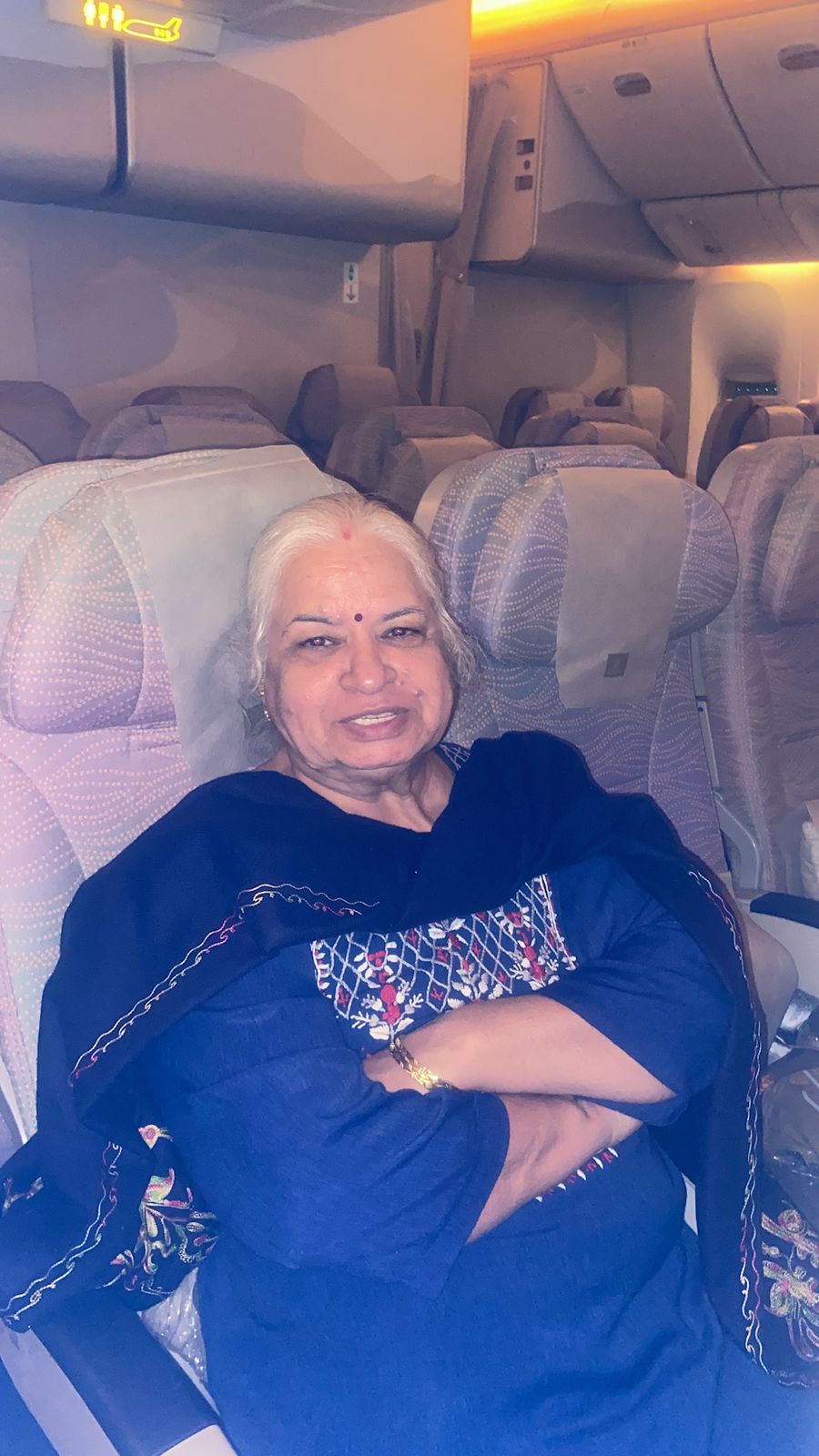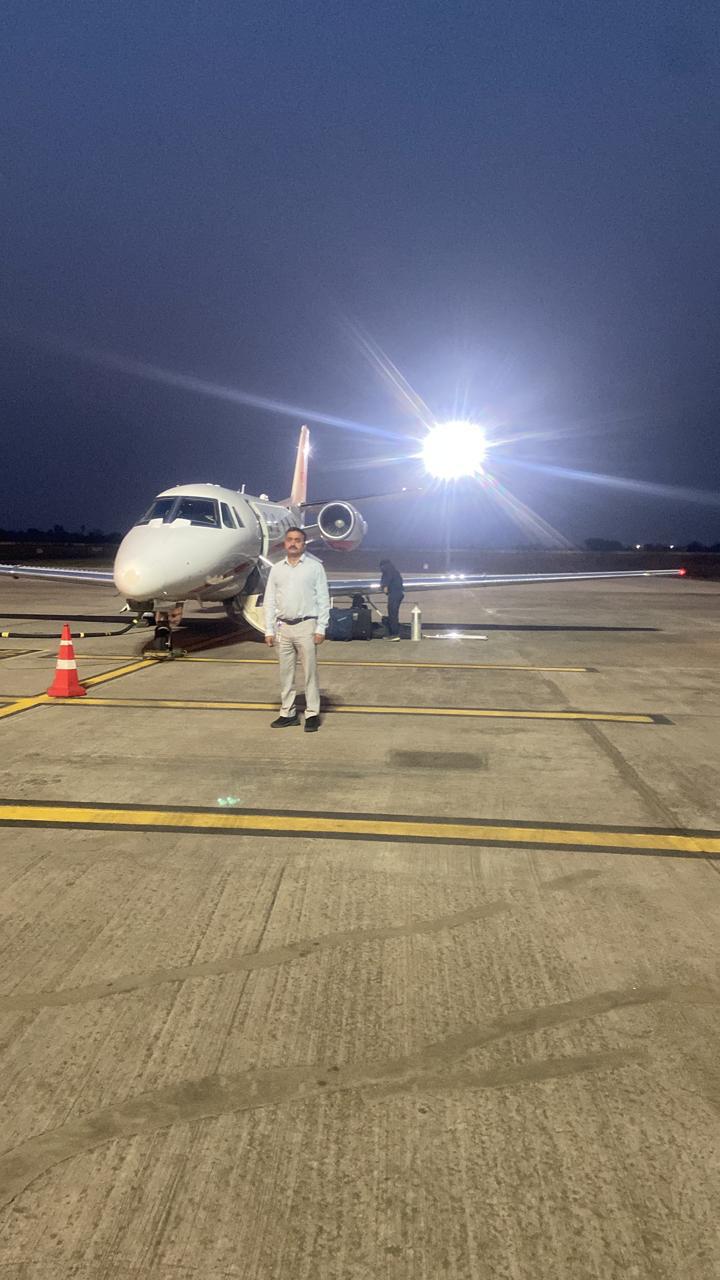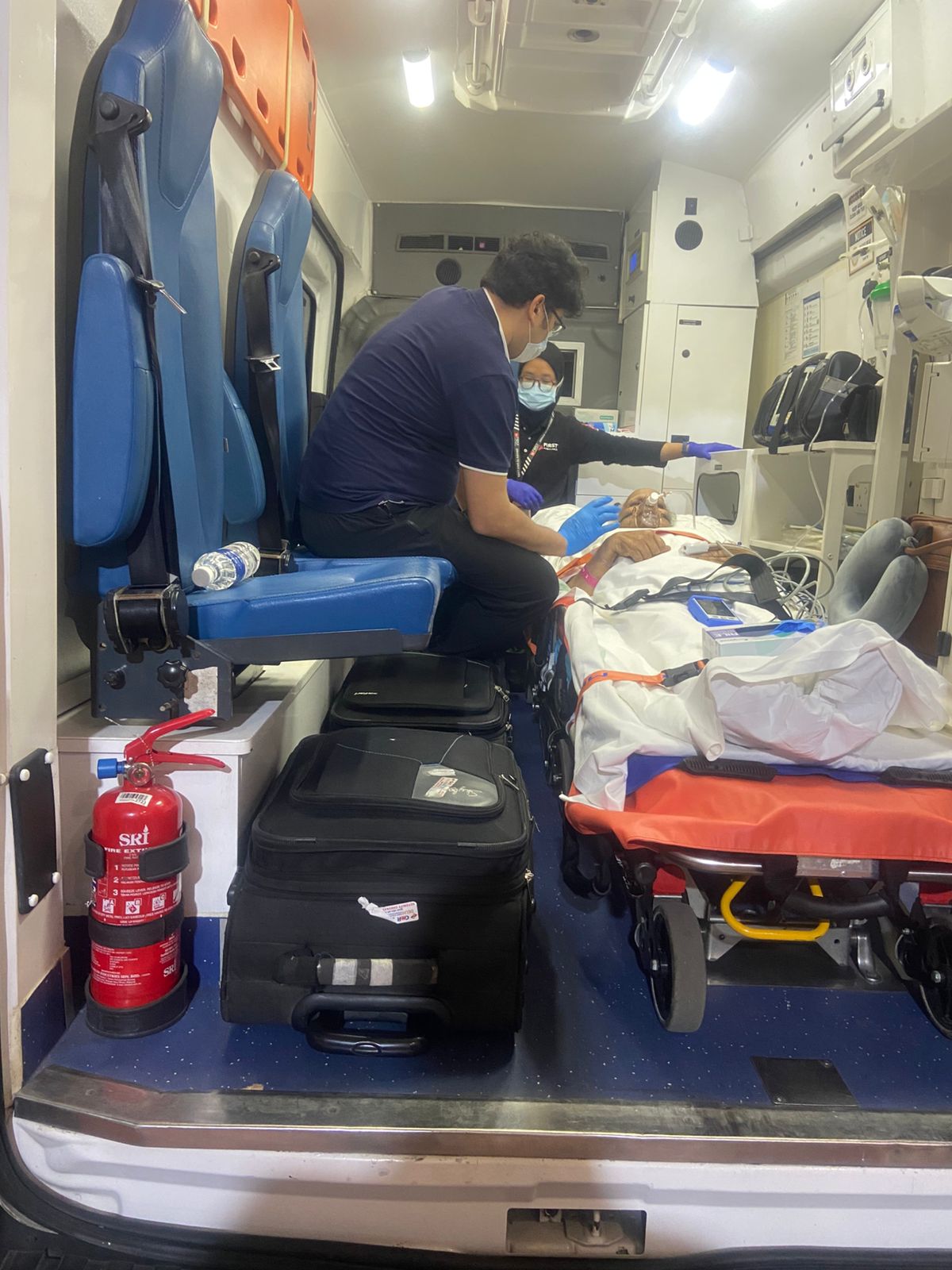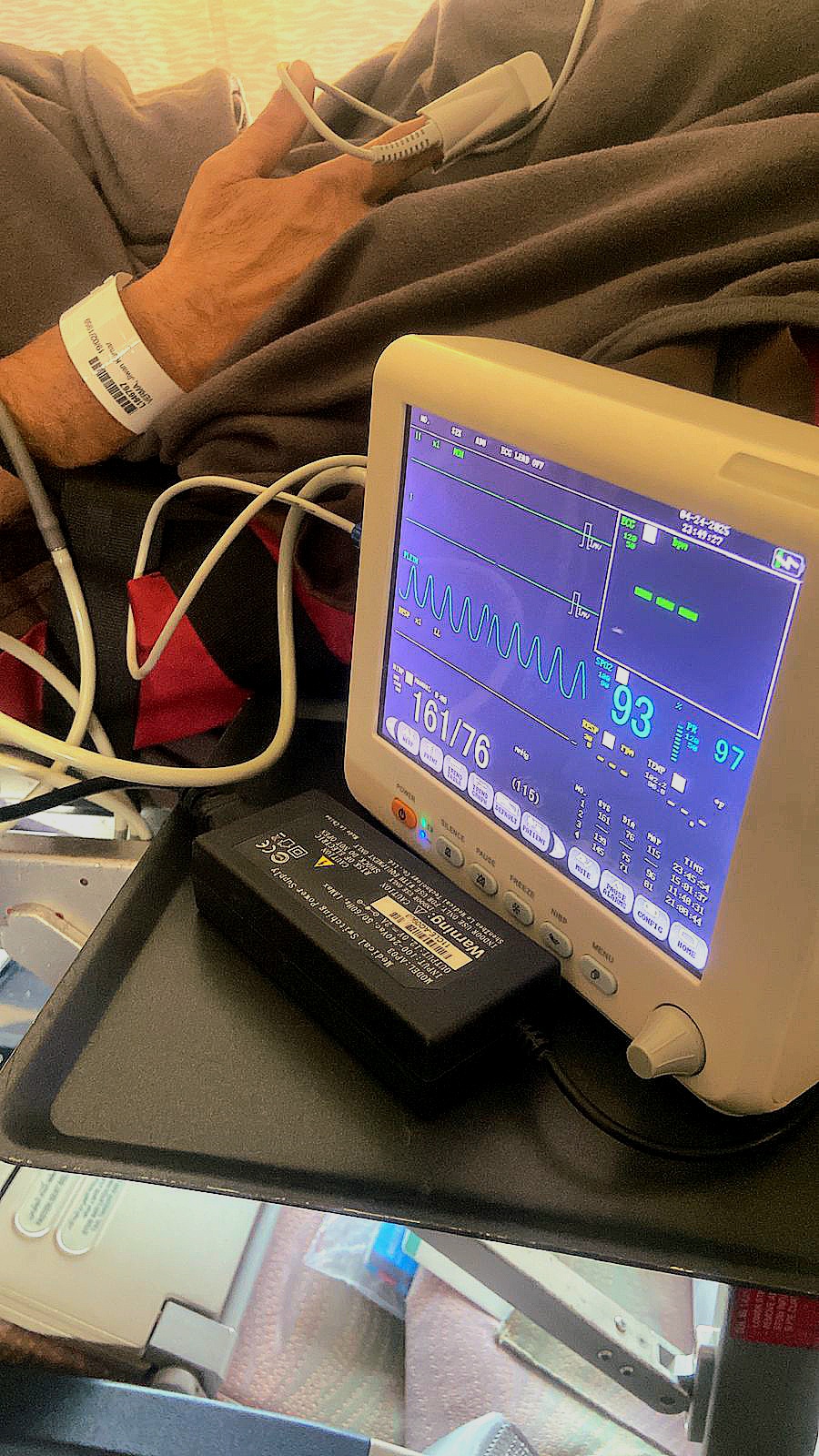As narrated by Dr. Ashok, Ashoka Rescue India
Patient Background
A 66-year-old female patient, with a medical history of diabetes and a past total knee replacement (TKR) surgery, was traveling through Europe with her husband. During their visit to Zurich, Switzerland, she experienced increased right knee pain and swelling due to extensive walking and climbing, which led to significant exertion on her affected knee. This exacerbated her condition, resulting in severe pain, knee swelling, and the development of a generalized body infection. Subsequently, she developed pneumonia, sepsis, and a brain infection known as meningitis. Her condition deteriorated further with the onset of secondary pneumococcal pneumonia and fluctuating blood sugar levels, managed with insulin due to poor dietary intake. Diagnostic fluid was obtained from the knee joint via arthroscopy for bacterial investigations. Over time, she developed hyponatremia, corrected with normal saline and sodium-retaining medications, and anemia with hemoglobin levels dropping to 7 g/dL. These complications necessitated her hospitalization at Lucerne Hospital, Zurich, for intensive care.

Repatriation Process
Upon receiving a request from the patient’s family for repatriation to India, Ashoka Rescue initiated the process by gathering medical reports and consulting with the treating physicians in Zurich. The airline was contacted to arrange for a commercial stretcher and onboard oxygen support. After obtaining medical clearance from the airline, ground ambulance services were coordinated for transport from Lucerne Hospital to Zurich Airport and upon arrival in Delhi, from the airport to Max Hospital.
Ashoka Rescue’s medical team arrived in Zurich a day before departure to assess the patient’s condition and ensure all arrangements were in place. The patient was then safely transferred from Lucerne Hospital to Zurich Airport by road ambulance, accompanied by Ashoka Rescue’s medical team, ensuring continuous monitoring and care. The journey was smooth, with the patient remaining vitally stable throughout, and she was safely admitted to Max Hospital in Delhi.
Lessons Learned and Recommendations
- Pre-Travel Medical Consultation: Patients with underlying health conditions should consult their treating physicians before traveling abroad to understand potential risks and necessary precautions.
- Adaptation to Local Cuisine: Travelers should gradually adapt to local foods to avoid dietary-related health issues, especially for individuals with diabetes.
- Mobility Aids: For patients with mobility limitations, carrying appropriate aids such as wheelchairs or crutches can help prevent strain and injuries.
- Essential Medical Equipment: Travelers should carry personal medical monitoring devices, including blood pressure monitors and glucometers, to manage their health conditions effectively during travel.
- Comprehensive Travel Insurance: Opting for travel insurance that covers medical emergencies, including evacuation and repatriation, can provide financial protection and peace of mind.
- Medical Escort Services: Engaging professional medical escort services can ensure continuous medical care during long-distance travel, especially for critically ill patients.

Conclusion
This case underscores the importance of meticulous planning and coordination in managing medical repatriations. Ashoka Rescue’s comprehensive approach, encompassing medical assessment, logistical arrangements, and continuous care, facilitated the safe return of the patient to India. It highlights the significance of pre-travel medical consultations, adaptation to local diets, and the availability of appropriate medical support during travel.
Stay informed, stay prepared, and prioritize health and safety during travel.






